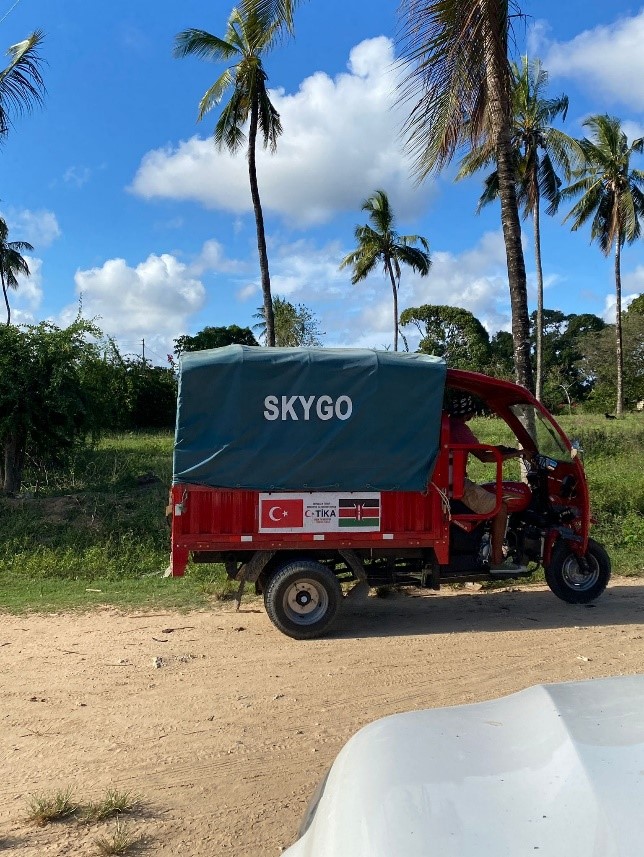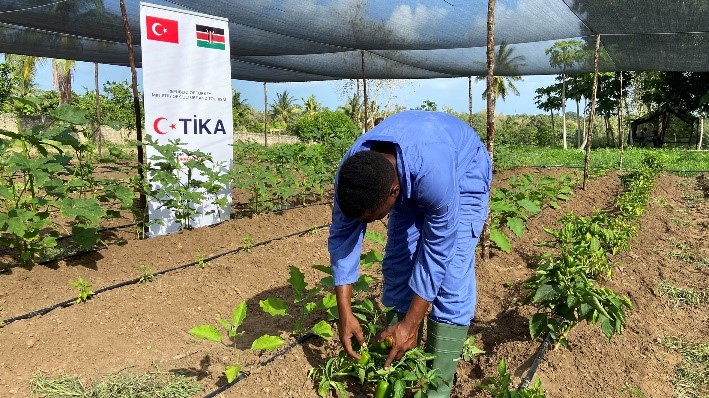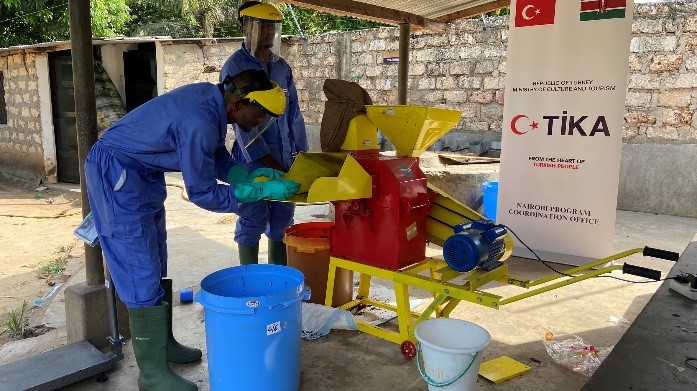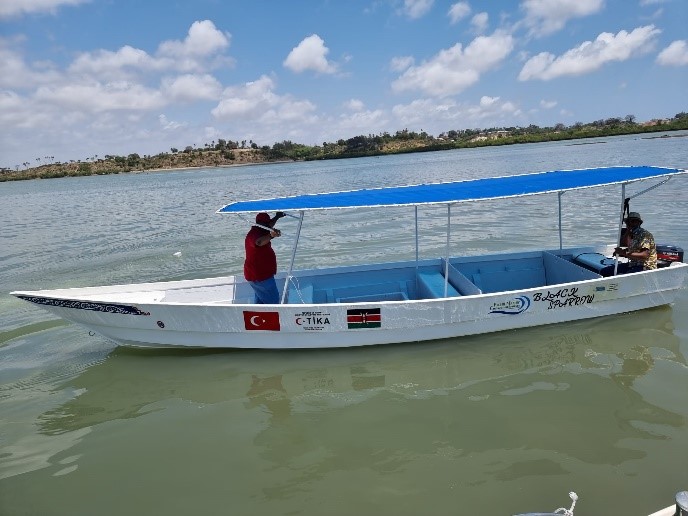 Organic Farming for Improved Livelihoods
Establishing an organic seaweed fertilizer production plant and donation of equipment for a cleaner coastline
Organic Farming for Improved Livelihoods
Establishing an organic seaweed fertilizer production plant and donation of equipment for a cleaner coastline

Challenges
In 2021, Kenya suffered from a sharp increase in fertilizer costs, making agricultural production more difficult and increasing food prices across the country. The major problem was an inadequate supply of fertilizer from producer countries. Although the Kenyan government attempted to resolve this problem through fertilizer subsidies, there is still room for sustainable solutions by contributing to the production sector. In-country production of seaweed fertilizer is particularly useful as, in addition to the fertilizer shortage, other problems include youth unemployment and sea pollution.
Towards a Solution
To address the challenges above, the TİKA Nairobi Program Coordination Office built an organic liquid seaweed fertilizer plant in Mombasa, Kenya, in partnership with a community-based organization, the Pwani Marine Conversionists. The project objective was to reduce farmer production costs (thus increasing their incomes), create job opportunities in Kenya, reduce marine pollution and create sustainable and environmentally friendly recycling methods. These goals are in line with SDG 1 (end poverty), SDG 8 (decent work and economic growth), SDG 10 (reduced inequalities), SDG 12 (responsible consumption and production) and SDG 14 (life below water).
The support provided by TİKA covered the entire production process of liquid seaweed fertilizer. TİKA donated a motorboat for the collection of seaweed, tools and equipment for processing the seaweed and producing fertilizers and a tuk-tuk (a three-wheeled transport vehicle) to transport the product from the beach to the Pwani Marine Conservationists production centre, which is staffed mostly by young employees. The group initially carried out their operations, without any equipment, using a small space in a group member’s house; with TIKA’s support, the operations were moved to a new location with adequate space (four acres) to accommodate equipment for the different stages of the production process. The project methodology was very simple. The motorboat collected seaweed, the tuk-tuk transported the seaweed to the production plant and at the plant the seaweed was processed with the machines and equipment donated by TİKA. After the production process was complete, the Pwani Marine Conservationists sold the final product to farmers at affordable prices. The project included the construction of a demonstration farm, where the organic seaweed fertilizers were tested and displayed for sale.
This project achieved the overarching goal of introducing organic seaweed fertilizer to the Kenyan market. Through the project, the capacity of the Pwani Marine Conversionists was strengthened and the standardization documents (KEBS certification) required to sell in the Kenyan market were obtained. The product became the first ’Made in Kenya’ organic seaweed fertilizer. Furthermore, the organization acquired Control Union Certification enabling them to market and sell their product to the European Union. As an important bonus, beneficiary communities can enjoy clean coastal shores, improving the environment for their fishing and other sea activities, and new job opportunities.
The project partner, Pwani Marine Conservationists, is a CBO based in Mombasa, has experience in marine life and organic agricultural production. Due to the success of the project during the initial phase, it was handed over to this local organization, which continues running the organic liquid seaweed fertilizer plant and has expressed satisfaction with the fertilizer’s quality. Marine Conversionists market the organic seaweed under the brand name Morganics Liquid Seaweed Fertilizer and continue creating job opportunities. New members have joined the group, working at different stages along the production line—from collection of seaweed, steering the boat (a coxswain and his crew), to driving the tuk-tuk and assisting in marketing and distribution of the final product.
The project reached outside of the mainstream approach to fertilizer supply in Kenya. Not only were supply chain and cost issues addressed, but the new project is innovative and 100% natural. The liquid seaweed fertilizer is produced through a fermentation process that does not require any additional chemicals and does not generate any hazardous waste, making it eco-friendly. The project is sustainable as the use of seaweed as the base of the fertilizer ensures there are no raw material input problems, allowing continuous income and even the opportunity to expand the market, taking advantage of Kenya’s 640-kilometre coastline.
Producing organic seaweed fertilizer may be a useful and cost-effective solution for other countries with coastlines that require inexpensive and continuous access to fertilizer to improve agricultural production.
Contact Information
Countries involved
Supported by
Implementing Entities
Project Status
Project Period
URL of the practice
Primary SDG
Primary SDG Targets
Secondary SDGs
Secondary SDG Targets
Similar Solutions
| NAME OF SOLUTION | Countries | SDG | Project Status | |
|---|---|---|---|---|
A-Card Initiative |
Kenya, Türkiye | 10 - Reduced Inequalities | Completed | View Details |
Accelerating Digital Transformation in All Ministries in Bangladesh Promoting the rapid design and implementation of plans to digitize all ministries and subordinate government institutions in Bangladesh |
Kenya, Türkiye | 10 - Reduced Inequalities | Ongoing | View Details |
Accelerator Labs Network Following collective intelligence methods to address emerging sustainability challenges and the growing demand for local solutions |
Kenya, Türkiye | 08 - Decent Work and Economic Growth 13 - Climate Action | Ongoing | View Details |
Accessibility of Financial Services and the Private Sector in Africa Maximizing the impact of financial cooperation on economic development and industrialization in Africa |
Kenya, Türkiye | 08 - Decent Work and Economic Growth | Completed | View Details |
Accessibility ToolKit Promoting accessibility as a cornerstone for inclusive digital development in Bangladesh. |
Kenya, Türkiye | 08 - Decent Work and Economic Growth | Completed | View Details |



